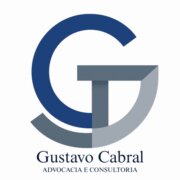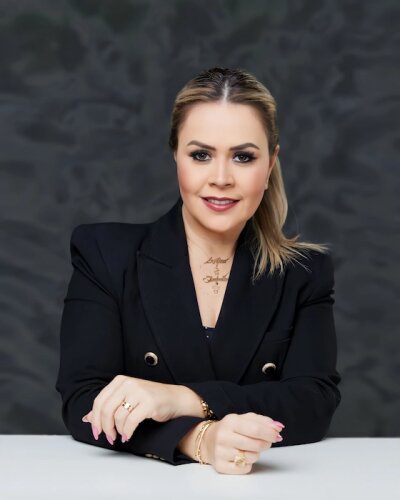Best Child Abuse Lawyers in Itajaí
Share your needs with us, get contacted by law firms.
Free. Takes 2 min.
Free Guide to Hiring a Family Lawyer
List of the best lawyers in Itajaí, Brazil
About Child Abuse Law in Itajaí, Brazil
Child abuse is a serious crime in Itajaí, Brazil, covered under both federal and state laws. Child abuse includes any form of physical, emotional, psychological harm, sexual exploitation, or neglect inflicted upon minors. The objective of the legal system is to protect children and adolescents, who are considered especially vulnerable, from all forms of violence and mistreatment. In Brazil, the Statute of the Child and Adolescent (Estatuto da Criança e do Adolescente - ECA) lays out the protection rights and procedures. Local authorities and social services in Itajaí work in conjunction with national legislation to provide a strong support network for victims and their families.
Why You May Need a Lawyer
Dealing with child abuse allegations, either as a victim, relative, or someone accused, can be complex and distressing. Having an experienced lawyer is crucial in the following situations:
- If you suspect a child is suffering abuse and want guidance on reporting and protecting the child.
- If you have been accused of child abuse and need to defend yourself legally.
- If you are a parent or guardian seeking custody or visitation rights affected by abuse allegations.
- If you are looking to understand your rights and obligations under Brazilian child protection laws.
- If you require representation before the Conselho Tutelar (Child Protection Council), police, or courts.
- If you need to navigate the child welfare system or collaborate with local protective agencies.
The legal process can be overwhelming, but a specialized lawyer can provide guidance, represent your interests, and help ensure the best outcome for the child involved.
Local Laws Overview
In Itajaí, child abuse is addressed under several legal instruments:
- Statute of the Child and Adolescent (ECA): This federal law governs all matters related to the protection of children and adolescents, including definitions, procedures, and penalties related to abuse.
- Penal Code: Specific criminal offenses such as bodily harm, serious threats, and sexual crimes against children are punishable by imprisonment and other penalties.
- Santa Catarina State Legislation: The state provides additional frameworks supporting the federal law, aiming to strengthen reporting mechanisms and social services in Itajaí.
The law mandates immediate reporting of suspected or confirmed abuse cases to authorities such as the police, Conselho Tutelar, or Ministry of Public Prosecution. Proceedings prioritize the best interests of the child, and various protective measures (such as protective custody, psychological support, and family interventions) may be employed. Penalties can range from restraining orders and loss of custody to imprisonment for offenders.
Frequently Asked Questions
What types of behavior are considered child abuse in Itajaí?
Child abuse encompasses physical violence, psychological harm, sexual abuse, exploitation, neglect, and any act or omission that endangers the safety, health, or development of a minor.
Who can report suspected child abuse in Itajaí?
Anyone, including neighbors, teachers, medical professionals, and family members, is encouraged and legally obligated to report suspected child abuse.
How do I report a case of child abuse?
Reports can be made to the local police, the Conselho Tutelar, or the Disque 100 hotline. The authorities are required to investigate and take appropriate action.
What happens after a child abuse report is filed?
Authorities conduct an investigation and may involve social workers, child psychologists, and legal professionals to determine the best protective measures and whether legal action is required.
Can I file a complaint anonymously?
Yes, anonymous complaints are accepted, especially through the Disque 100 hotline, ensuring the safety of the reporter.
What are the penalties for those found guilty of child abuse?
Penalties include imprisonment, restraining orders, loss of parental rights or custody, and mandatory participation in educational or rehabilitation programs.
How is the child protected during an investigation?
Protective measures may involve removal from the abusive environment, placement with trustworthy relatives or foster care, and psychological assistance.
What rights do parents have if accused of child abuse?
Accused parents have the right to a legal defense, to present evidence, and to have their case heard in court. However, their rights may be restricted to protect the child's welfare.
How long do child abuse cases take to resolve?
The duration depends on the complexity of each case, but urgent protective actions are taken immediately. Full legal proceedings may take several months.
Are there special courts for child abuse cases in Itajaí?
Yes, specialized Juvenile Courts (Vara da Infância e Juventude) handle these cases, focusing on the protection of children and adolescents.
Additional Resources
If you or someone you know needs assistance or more information about child abuse in Itajaí, consider reaching out to the following resources:
- Conselho Tutelar de Itajaí: The main body for child protection and emergency intervention.
- Ministério Público de Santa Catarina: The public prosecutor’s office oversees child protection cases.
- Delegacia de Proteção à Criança, Adolescente, Mulher e Idoso (DPCAMI): Specialized police unit for abuse investigations.
- Disque 100: National hotline for reporting human rights violations, including child abuse.
- Social Services and NGOs: Several local non-governmental organizations provide support, counseling, and legal advice for affected families.
Next Steps
If you are involved in or aware of a child abuse situation in Itajaí, take the following actions:
- Ensure the immediate safety of the child by contacting the authorities if there is urgent danger.
- Report the case to the Conselho Tutelar, police, or Disque 100 as soon as possible.
- Consult with a lawyer specialized in child protection law for guidance through the legal process and to represent your interests.
- Gather all available evidence, such as documents, photographs, or testimonies, to support the case.
- Cooperate with investigators and child protection agencies to ensure the child's best interests are maintained.
Seeking legal assistance early on is crucial to protect children’s rights and to comply with the legal processes in Brazil. The right professional guidance can help you navigate local regulations, access protective services, and achieve the best possible outcome for those affected.
Lawzana helps you find the best lawyers and law firms in Itajaí through a curated and pre-screened list of qualified legal professionals. Our platform offers rankings and detailed profiles of attorneys and law firms, allowing you to compare based on practice areas, including Child Abuse, experience, and client feedback.
Each profile includes a description of the firm's areas of practice, client reviews, team members and partners, year of establishment, spoken languages, office locations, contact information, social media presence, and any published articles or resources. Most firms on our platform speak English and are experienced in both local and international legal matters.
Get a quote from top-rated law firms in Itajaí, Brazil — quickly, securely, and without unnecessary hassle.
Disclaimer:
The information provided on this page is for general informational purposes only and does not constitute legal advice. While we strive to ensure the accuracy and relevance of the content, legal information may change over time, and interpretations of the law can vary. You should always consult with a qualified legal professional for advice specific to your situation.
We disclaim all liability for actions taken or not taken based on the content of this page. If you believe any information is incorrect or outdated, please contact us, and we will review and update it where appropriate.











